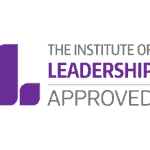What if I told you that prevention is not only better than the cure, it is the only way to future-proof your mental wellbeing and coping abilities.
That being said, when burnout does happen there are things you can do to recover.
This article from HBR outlines the three distinct symptoms of burnout. Recovery requires action to discover which areas you have become depleted and to replenish and refuel in the right ways. The symptoms are:
Exhaustion (a depletion of mental or physical resources), cynical detachment (a depletion of social connectedness), and a reduced sense of efficacy (a depletion of value for oneself).

The solution is you.
The HBR article reminds us that is a great reminder that while “burnout is an organisational problem“, the solution is in the hands of the individual.
Well-meaning managers** can make things far worse, so it’s important that you understand your responsibility in relation to burnout.
The Responsibilities:
- Are you a BUSINESS OWNER OR LEADER? You are responsible for providing a safe work environment and safe working practices, and for monitoring and reviewing regularly.
- Are you a MANAGER? You are responsible for ensuring that you are providing a safe working environment and safe working practices in your team, for being aware of the signs of people struggling to cope, for initiating supportive conversations and signposting people to appropriate support, for identifying risks and taking action to mitigate the risks, and explicitly, for behaving in a manner that is conducive to good mental health.
- Are you an INDIVIDUAL STRUGGLING? You are responsible for working in a way that is safe and will not impact on the health and wellbeing of yourself or others, for recognising the signs of when you are struggling to cope, for seeking appropriate support (professional or otherwise) and for making your manager and colleagues aware of your health so that they are provided with an opportunity to support you.
While we all need to understand the limits of our responsibility and act appropriately, it’s also important for organisations to do all that they can to prevent burnout, ultimately when your people burnout, your business could too.
For leaders, there’s various training programmes you can participate in to up-skill in all areas of mental wellbeing, emotional intelligence and better supporting your staff. At organisational level you can sign up for all-staff training in the importance of wellbeing and a culture of positivity. Or you can encourage individuals to train as a Mental Health First Aiders, offering in-house support from those trained in listening and sign posting.
Burnout need not be the norm. Aim for prevention for you and all of your staff.



